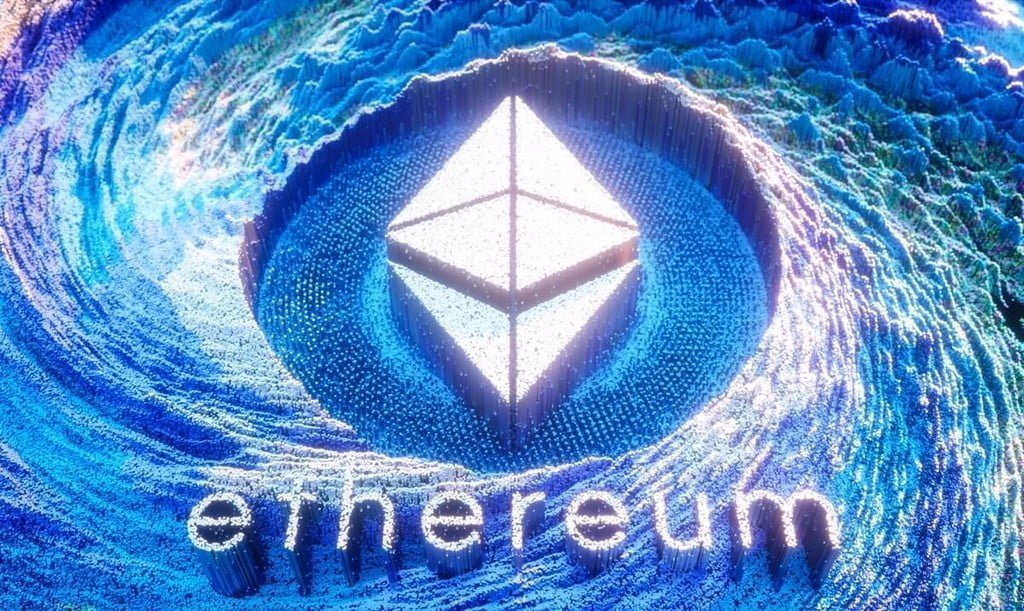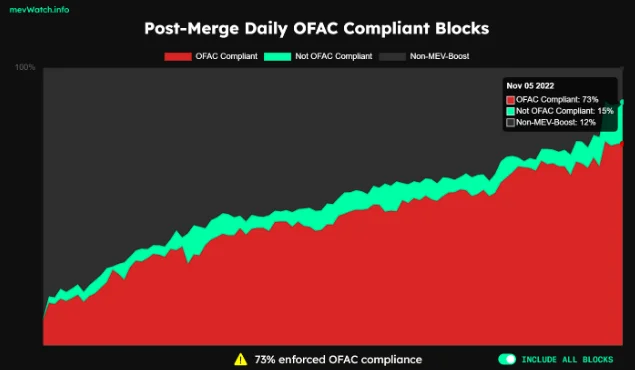According to data from mevWatch, Ethereum is gearing toward total censorship as the minting of OFAC-compliant Ethereum blocks on a daily basis has grown to a 73% rise.

The community has been monitoring Ethereum’s increasing compliance with requirements set forth by the Office of Foreign Assets Control (OFAC) since protocol-level censorship is a deterrent to the crypto ecosystem’s goal of extremely open and accessible finance. Over 73% of blocks on the Ethereum network over the past 24 hours have been determined to enforce OFAC compliance.

In October 2022, Cointelegraph published a story on the growing censorship worries following the discovery that 51% of Ethereum blocks complied with OFAC criteria. The daily minting of OFAC-compliant blocks has increased to 73% as of Nov. 3, according to data from mevWatch.

Certain MEV-Boost relays, which are subject to OFAC regulation, will censor particular transactions. As a result, the network must implement a non-censoring MEV-Boost relay in order to guarantee the neutrality of Ethereum.
By removing relays like BloXroute Max Profit, BloxRoute Ethical, Manifold, and Relayooor from their MEV-Boost configuration, Ethereum validators can lessen their compliance with OFAC regulations.
The US government agency can apply economic and trade sanctions thanks to compliance with OFAC. The organization previously sanctioned Tornado Cash and a number of Ethereum addresses.
45% of all Ethereum blocks as of right now are regarded as OFAC-compliant.
After UnionBank, one of the biggest universal banks in the Philippines launched cryptocurrency trading in collaboration with the Swiss crypto company Metaco, the acceptance of Bitcoin and Ethereum by the general public accelerated.
Henry Aguda, chief technology officer and chief transformation officer of UnionBank, said, “We are thrilled to continue UnionBank’s run of industry firsts, this time becoming the first regulated bank in the country to provide digital currency conversion facilities for clients.”
